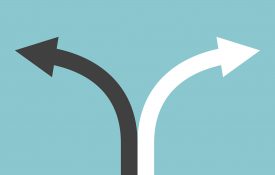-

New Research From Psychological Science
A sample of research exploring advice giving and motivation, mechanisms underlying face and expression processing impairments in autism, and visual perception in peripersonal space.
-
Black Space, White Blindness
In John Sayles’ 1984 movie The Brother From Another Planet, a card shark is riding a northbound A train that is about to make the 66-block jump from Midtown to Harlem. “I have another magic trick for you,” he says. “Wanna see me make all the white people disappear?” The conductor announces the train is going express, skipping the Upper West Side; white passengers disembark. The joke is a bit outdated; a 40-year exodus of black Americans and the more recent influx of gentrifying whites put blacks in the minority in Greater Harlem a decade ago. But it speaks to a familiar truth about the way that even urbane, liberal whites think about black neighborhoods: as places not to go.
-
Why we shouldn’t be too modest
Pride is the downfall of many a tragic hero. Mr Darcy has to let his go before he can earn Elizabeth Bennet’s love. Dante listed it as one of the seven deadly sins. And as the famous (and oft-misquoted) verse from Proverbs cautions us, it “goeth before destruction, and a haughty spirit before a fall”. There’s no question about it: we’re consistently told that pride makes us obnoxious at best and doomed at worst. But pride may not entirely deserve this reputation as a destructive force. There’s new evidence that this emotion has an evolutionary function, and that it plays an important role in the way that we interact with the world. This makes sense.
-
Growing up with Alexa: A child’s relationship with Amazon’s voice assistant
The first four words my toddler understood were "mom," "dad," "cat" and "Alexa." Cameron first recognized the name of Amazon's voice assistant while sitting, covered in spaghetti sauce, in his high chair. I'd no sooner said "Alexa" than he whipped his head around to look at the Echo speaker tucked behind the potted golden pothos on the bookcase. He'd heard me say "Alexa" plenty of times before (I often wondered if he thought it was the plant responding), but this time he knew the Echo would light up and say something.
-
Most Initial Conversations Go Better Than People Think
Have you ever met someone, replayed your conversation in your head and thought of the perfect response to a question or statement after the fact? Something that would have demonstrated how witty or knowledgeable you are or how much you have in common? You’re not alone. We’ve all had these moments of what-if. But a recent study reports that many of us may be underestimating how well the conversation may have gone overall. Why is this important?
-

Binary Bias Distorts How We Integrate Information
When we evaluate and compare a range of data points, we tend to neglect the relative strength of the evidence and treat it as simply binary.

